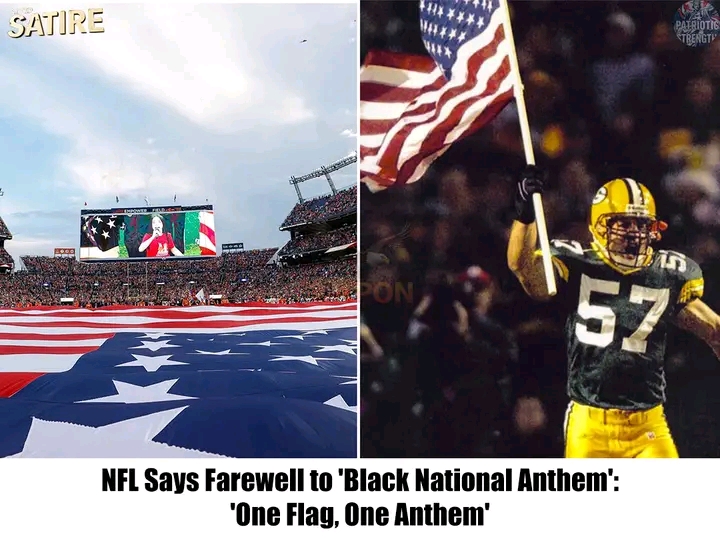NFL
NFL Says ‘One Flag, One Anthem,’ Drops ‘Black National Anthem

The NFL has made a significant decision regarding the “Black National Anthem,” announcing a permanent ban on its performance during league events. The song, “Lift Every Voice and Sing,” which has been recognized by many as the Black National Anthem, was introduced as part of the league’s efforts to address racial inequality and social justice issues in the wake of nationwide protests following the killing of George Floyd in 2020. However, this move to ban its performance has reignited debates on race, patriotism, and what the national anthem symbolizes.
The NFL’s decision to ban the song stems from a belief that there should be a singular unifying anthem for the nation. The league stated, “There’s only one national anthem,” referring to “The Star-Spangled Banner.” The sentiment behind this stance is that having multiple anthems could foster division rather than unity, particularly during highly visible and symbolic moments like the pregame ceremonies of football games, which are watched by millions across the country.
Supporters of the decision argue that national events like NFL games should promote unity, and having one anthem that represents all Americans is crucial to maintaining a sense of togetherness. Many see “The Star-Spangled Banner” as an anthem that transcends race, ethnicity, and background, representing the country as a whole. These advocates suggest that performing different anthems for different communities could undermine the idea of national unity and instead highlight divisions.
Opponents of the ban, however, feel that the NFL is missing a crucial opportunity to continue addressing the complex issues of race and equality. “Lift Every Voice and Sing” has a long history and deep significance in the African American community, often seen as a symbol of resilience, hope, and progress in the face of adversity. Critics argue that silencing the anthem is akin to downplaying the contributions and struggles of Black Americans, particularly when those very struggles are tied to the nation’s history.
For many in the Black community, “Lift Every Voice and Sing” represents more than just a song. It’s a hymn that has roots in the fight for civil rights and has been sung at key moments in African American history. To them, banning it is more than just a decision about music – it sends a message about whose stories and voices are considered important in the narrative of American patriotism.